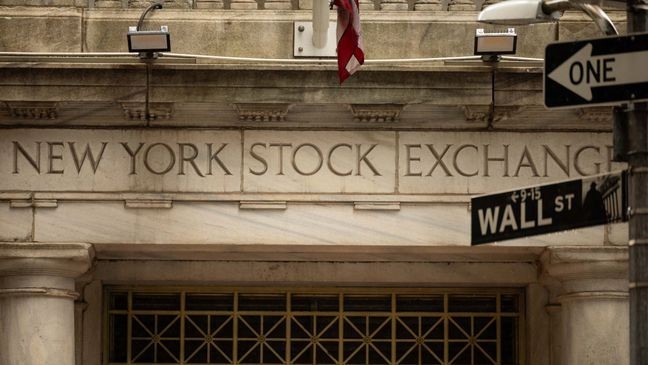Did you know that the average person spends about two years of their life waiting for red lights to turn green? While waiting might be a normal part of life, waiting to get caught for insider trading is not something any day trader wants to experience. In this article, we delve into essential preventive measures against insider trading specifically tailored for day traders. We’ll cover the key laws that protect traders, how to identify insider information risks, and best practices to avoid allegations. Additionally, we explore the impact of insider trading on day trading activities, compliance measures to follow, and how technology can aid in prevention. Learn about the role of brokerage firms, the importance of maintaining an ethical trading environment, and what to do if you suspect insider trading. With insights from DayTradingBusiness, you’ll be better equipped to navigate the complexities of trading while steering clear of legal pitfalls.
What are the key laws preventing insider trading for day traders?
The key laws are the Securities Exchange Act of 1934, especially Section 10(b) and Rule 10b-5, which prohibit trading based on material nonpublic information. The Securities Act of 1933 also restrict misuse of confidential information. The Insider Trading and Securities Fraud Enforcement Act of 1988 increased penalties for insider trading. These laws make it illegal for day traders to buy or sell securities using undisclosed, material information they possess due to their position or relationship.
How can day traders identify insider information risks?
Day traders can spot insider information risks by watching for sudden, unexplained market moves, especially in small-cap stocks. If a stock jumps or drops sharply without news or earnings reports, it may signal insider trading. Stay alert to rumors or leaks circulating on social media or chat rooms. Cross-check any unusual trading volume spikes with news sources; lack of public info combined with big trades hints at insider activity. Use technical analysis to spot irregular patterns that don’t match fundamental data. Keep a close eye on regulatory alerts and suspicious trading activity reports from authorities. These signs help identify potential insider information risks before making trades.
What are best practices to avoid insider trading allegations?
Keep all trading decisions based on public information, not non-public tips. Maintain strict confidentiality about your sources and strategies. Keep detailed records of your trades and research to show transparency. Avoid trading on material non-public news or rumors. Follow your firm’s compliance policies and trading windows. Regularly review insider trading laws and your firm’s code of conduct. If unsure about the legality of a trade, consult compliance or legal advisors. Stay disciplined—emotional or impulsive trades can lead to risky, suspicious activity.
How does insider trading impact day trading activities?
Insider trading undermines fair markets, making day trading riskier due to unpredictable price swings caused by illegal information. It creates an uneven playing field, discouraging legitimate traders, and increases market volatility. Preventive measures like strict compliance, insider trading policies, and monitoring can help day traders avoid inadvertently participating in illegal activities and protect their capital.
What compliance measures should day traders follow?
Day traders should verify the source of their information, avoid trading on non-public or material non-public info, keep detailed records of all trades, and stay updated on insider trading laws. They must also implement internal controls, monitor for suspicious activity, and receive regular compliance training to prevent insider trading violations.
How can traders detect suspicious market activity?
Traders spot suspicious activity by monitoring unusual price swings, sudden volume spikes, and irregular trade patterns. They watch for trades executed just before major news or earnings releases, indicating possible insider info. Unexplained price gaps or rapid movements without news can signal manipulation. Using real-time alerts and comparing trading volumes to historical data helps identify anomalies. Keeping an eye on dark pool activity and cross-referencing SEC filings can also reveal suspicious trades.
What training is available to prevent insider trading?
Training programs on insider trading prevention include online courses, webinars, and workshops focused on legal regulations, ethical trading practices, and identifying suspicious activities. Many brokerages and financial firms offer compliance training that covers insider trading laws, reporting protocols, and case studies. Regulatory agencies like the SEC provide educational resources and mandatory training for traders to understand insider trading risks and consequences. Some firms also offer tailored seminars emphasizing internal policies, confidentiality, and red flags to watch for.
How should day traders handle confidential information?
Day traders should keep all confidential information strictly private, avoid sharing it with anyone, and only trade based on publicly available data. Use secure channels to store sensitive info, stay compliant with regulations, and never act on non-public info. Regularly review your trading practices to ensure no insider info influences your decisions.
What are penalties for insider trading in day trading?

Penalties for insider trading in day trading include hefty fines, disgorgement of profits, and imprisonment up to 20 years. The SEC can also ban traders from securities markets and impose civil penalties. Regulatory agencies may pursue criminal charges, leading to jail time and significant financial penalties.
How can technology help prevent insider trading?
Technology can detect unusual trading patterns and flag suspicious activities in real-time. Advanced algorithms analyze large datasets to identify insider trading signals. Surveillance systems monitor communication channels for insider information leaks. Machine learning models adapt to evolving tactics, reducing false positives. Automated alerts notify compliance teams immediately, enabling swift action. These tools make it harder for insider trading to go unnoticed, protecting markets and traders.
What role do brokerage firms play in preventing insider trading?
Brokerage firms monitor trading activity, flag suspicious transactions, and enforce strict compliance policies to prevent insider trading. They conduct employee training on legal boundaries and enforce trading restrictions for insiders. Firms also use surveillance tools to detect unusual patterns, review trades for insider information, and report suspicious activity to regulators. Their role is to act as gatekeepers, ensuring traders don’t exploit confidential info for personal gain.
How to establish an ethical trading environment?
Implement strict internal controls and access restrictions to prevent insider trading. Educate traders on legal boundaries and ethical standards regularly. Require confidentiality agreements and monitor trading activity for suspicious patterns. Use real-time surveillance to detect unusual trades. Establish clear consequences for violations and promote a culture of transparency. Ensure compliance with regulations like SEC rules to foster an ethical trading environment.
What are common signs of insider trading to watch for?

Common signs of insider trading include sudden, unexplained stock price jumps before news becomes public, unusually high trading volume ahead of significant announcements, and traders consistently making profitable moves based on non-public information. Watch for sharp increases in a trader’s activity without clear market reasons, or patterns where certain individuals seem to trade on confidential data. Unusual timing, like trades just before earnings reports or regulatory filings, also hints at insider trading.
How should traders record their trading activities?
Traders should keep detailed logs of all trades, including date, time, asset, price, volume, and reason for each trade. Use secure, organized records like trading journals or digital spreadsheets to document decisions and market conditions. Regularly review and back up these records to ensure accuracy and compliance with regulations.
What should day traders do if they suspect insider trading?
If you suspect insider trading, day traders should avoid acting on the info, report it to the SEC, and stick to transparent, legal trading practices. Never try to profit from suspicious tips, and keep detailed records of your trades. Stay informed about insider trading laws to avoid unintentional violations.
Conclusion about Preventive Measures Against Insider Trading for Day Traders
In conclusion, day traders must prioritize understanding and adhering to laws against insider trading to maintain ethical practices and ensure compliance. By recognizing risks, implementing best practices, and utilizing technology, traders can effectively safeguard against insider trading allegations. Continuous education and vigilance are essential, as is fostering a transparent trading environment. DayTradingBusiness is committed to equipping traders with the knowledge and tools necessary to navigate these challenges successfully.
Learn about Legal Consequences of Insider Trading for Day Traders
Sources:
- Jeopardy, non-public information, and insider trading around SEC ...
- Capital-market effects of tipper-tippee insider trading law: Evidence ...
- Voting for insider trading regulation. An experimental study of ...
- Informed options trading before FDA drug advisory meetings ...
- Price revelation from insider trading: Evidence from hacked earnings ...